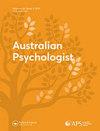The mental health of elite athletes in developing nations of the greater Oceania region
IF 2
4区 心理学
Q2 PSYCHOLOGY, MULTIDISCIPLINARY
引用次数: 2
Abstract
ABSTRACT Objective The mental health of elite athletes is reportedly similar to that of the general community, but there could be important differences across geographic regions and cultures. This study investigated the mental health and levels of psychological distress of elite athletes from developing nations in the Oceania region via a cross-sectional survey. Method The survey assessed the mental health status, psychological distress, and help-seeking behaviours of athletes from 12 nations of the Oceania region who participated in the Gather, Adjust, Prepare, Sustain (GAPS) program. Results A high proportion of athletes (84%) met cut-off criteria for at least one of the investigated mental health symptoms. Athletes reported being most likely to seek help from their mother, father, or coach. Furthermore, athletes who reported high psychological distress did not differ in anticipated help-seeking behaviour from athletes who reported low psychological distress. Conclusions The findings suggest that mental health symptoms are prevalent among elite athletes from developing nations in the Oceania region. Psychological distress did not predict willingness to seek help, suggesting that education and support frameworks are needed to assist this vulnerable group. Piloting support programs in collaborative aid with nearby developed nations may be warranted and interventions may consider targeted mental health literacy resources and education. Key points What is already known about this topic: The demands athletes face increases their susceptibility to elevated mental health symptoms. Athletes may not seek help for mental health symptoms due to psychological (i.e., stigma) and physical (i.e., geographical) barriers. There is limited research on mental health symptoms and outcomes for athletes, especially among those from developing nations. What this topic adds: A high proportion of athletes (84%) exceeded cut-off scores for elevated psychological distress or a mental health symptom related to depression, anxiety, or eating. Athletes were more likely to seek help from their parents or coach than a mental health professional. Higher psychological distress did not predict help-seeking behaviour thus identifying a need for support programs and collaborative aid.大洋洲地区发展中国家优秀运动员的心理健康
摘要目的据报道,精英运动员的心理健康状况与普通人群相似,但不同地理区域和文化之间可能存在重要差异。本研究通过横断面调查,调查了大洋洲地区发展中国家精英运动员的心理健康状况和心理困扰程度。方法对大洋洲地区12个国家参加“集合、调整、准备、维持”(GAPS)项目的运动员的心理健康状况、心理困扰和求助行为进行调查。结果高比例的运动员(84%)至少有一项心理健康症状符合截止标准。据报道,运动员最有可能向母亲、父亲或教练寻求帮助。此外,报告心理压力高的运动员与报告心理压力低的运动员在预期求助行为方面没有差异。结论研究结果表明,大洋洲地区发展中国家的优秀运动员普遍存在心理健康症状。心理困扰并不能预测寻求帮助的意愿,这表明需要教育和支持框架来帮助这一弱势群体。与附近发达国家合作援助的试点支持计划可能是有必要的,干预措施可能会考虑有针对性的心理健康扫盲资源和教育。关键点关于这个话题已经知道的是:运动员面临的需求增加了他们对心理健康症状的易感性。由于心理(即污名)和身体(即地理)障碍,运动员可能不会因心理健康症状寻求帮助。对运动员,特别是发展中国家运动员的心理健康症状和结果的研究有限。本主题补充道:高比例的运动员(84%)超过了心理困扰加剧或与抑郁、焦虑或饮食有关的心理健康症状的临界分数。与心理健康专业人士相比,运动员更有可能向父母或教练寻求帮助。更高的心理困扰并不能预测寻求帮助的行为,因此确定了对支持计划和合作援助的需求。
本文章由计算机程序翻译,如有差异,请以英文原文为准。
求助全文
约1分钟内获得全文
求助全文
来源期刊

Australian Psychologist
PSYCHOLOGY, MULTIDISCIPLINARY-
CiteScore
3.70
自引率
5.30%
发文量
32
期刊介绍:
The Australian Psychologist is the official applied practice and public policy journal of the Australian Psychological Society. As such, the journal solicits articles covering current issues in psychology, the science and practice of psychology, and psychology"s contribution to public policy, with particular emphasis on the Australian context. Periodically, Australian Psychological Society documents, including but not limited to, position papers, reports of the Society, ethics information, surveys of the membership, announcements, and selected award addresses may appear in the journal.
 求助内容:
求助内容: 应助结果提醒方式:
应助结果提醒方式:


